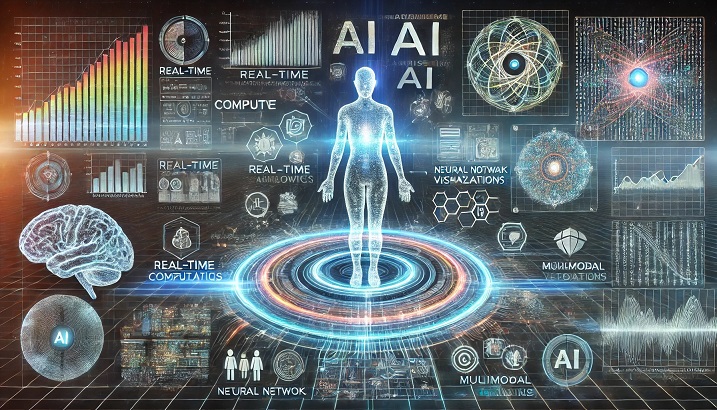15 AI Breakthroughs Ready to Transform 2025
Explore how AI is revolutionizing new possibilities for businesses.

Riya
Architect

# 15 AI Breakthroughs Ready to Transform 2025
2025 promises transformative changes in AI—from autonomous agents and real-time learning to AI-first hardware and ethical innovation. These 15 trends offer a glimpse into a future where technology adapts and evolves faster than ever.
Agentic AI on the Rise
There's a surging interest in AI agents that can plan, analyze, and act independently. By 2025, these systems are expected to excel at deconstructing complex challenges and interfacing with various tools and databases to achieve their objectives. The key challenge will be enabling them to navigate multi-step, variable-rich scenarios without losing focus.
The Rise of Ultra-Large Models
Today's leading models boast around 1–2 trillion parameters, but we could soon witness a leap to models with 50 trillion parameters or more. This dramatic increase in scale promises groundbreaking capabilities, pushing the boundaries of what AI can accomplish.
The Revival of Compact Models
On the other side, we're also looking at smaller, task-specific models—often just a few billion parameters in size—that can run efficiently on personal devices like laptops or even smartphones. These little models open up exciting opportunities for personalized, on-device AI applications without the need for massive compute power.
Integrated Multimodal AI
The future of AI is not just about text. We're moving toward a seamless blend of language, images, audio, and sensor data. Imagine an AI that can interpret your mood from a selfie, understand your written query, and then respond with a rich, multimodal answer.
Next-Generation Enterprise Applications
While last year's AI implementations focused on customer experience, IT automation, and cybersecurity, 2025 will likely bring customer service bots that can solve complex issues, systems that proactively optimize entire IT networks, and security tools that adjust in real time to emerging threats.
Expansive Memory Capabilities
Context is everything. With future AI models capable of processing hundreds of thousands—or even millions—of tokens, we're approaching an era of nearly "infinite" memory. This means your AI assistant could remember every interaction, making for highly personalized and context-aware conversations.
Enhanced Inference-Time Computation
Picture AI models that pause just a bit longer for intricate queries—adjusting their response time based on the complexity of the reasoning required. This isn't about scaling up the model size but about refining the internal chain-of-thought process, which leads to more thoughtful and precise responses without needing to retrain the entire model.
Real-Time Decision-Making at the Edge
With processing power shifting from centralized cloud servers to edge devices, AI will be able to make real-time decisions locally. Whether it's in autonomous vehicles, smart health monitors, or IoT devices, faster and more responsive AI is on the horizon.
AI as a Creative Collaborator
From art and music to writing, AI is emerging as a creative partner. In the coming years, I envision AI systems that combine human intuition with machine precision to drive innovative and unexpected creative projects.
Real-Time Learning and Adaptation
The next frontier involves AI systems that can learn and adapt on the fly without needing complete retraining. This dynamic, real-time evolution could revolutionize areas ranging from cybersecurity to personalized education, making AI even more responsive and context-sensitive.
AI-First Hardware Revolution
Prepare for a wave of devices built specifically with AI in mind. This isn't just about more powerful chips—it's about dedicated AI cores in smartphones, smart home devices equipped with edge processing, and even lightweight models powering augmented reality glasses. The hardware landscape is set for a radical transformation.
Emotional Intelligence in AI
AI is moving beyond simple sentiment analysis to truly recognizing and responding to emotional cues in voice, facial expressions, and text. This evolution holds enormous promise for enhancing mental health support, education, and customer service.
Democratized AI Development
No-code and low-code AI platforms are quickly gaining traction, making it easier than ever for small businesses and individual creators to build custom AI solutions. With the barrier to entry dropping fast, innovation is set to become more accessible to all.
Ethical and Sustainable AI Development
As AI continues to evolve, issues like bias, privacy, and energy consumption come to the forefront. By 2025, expect a stronger emphasis on creating AI that is transparent, fair, and energy-efficient—merging responsibility with innovation.
AI Governance Evolution
With great power comes great responsibility. 2025 will likely usher in innovative approaches to AI governance—focusing on transparency, accountability, and ethical deployment that go well beyond traditional regulatory measures.